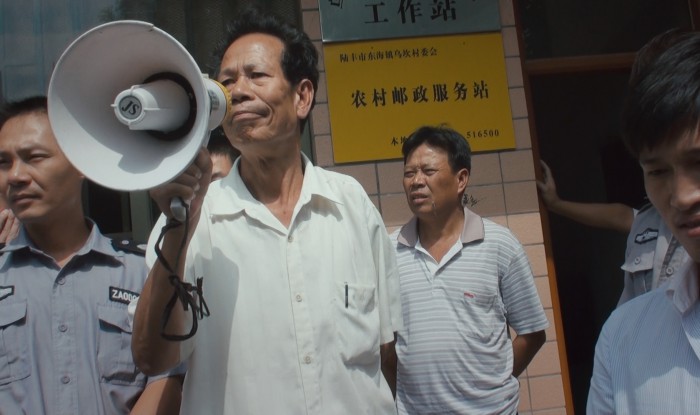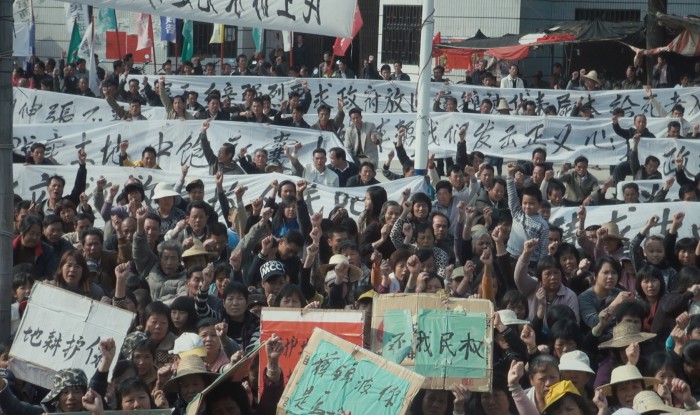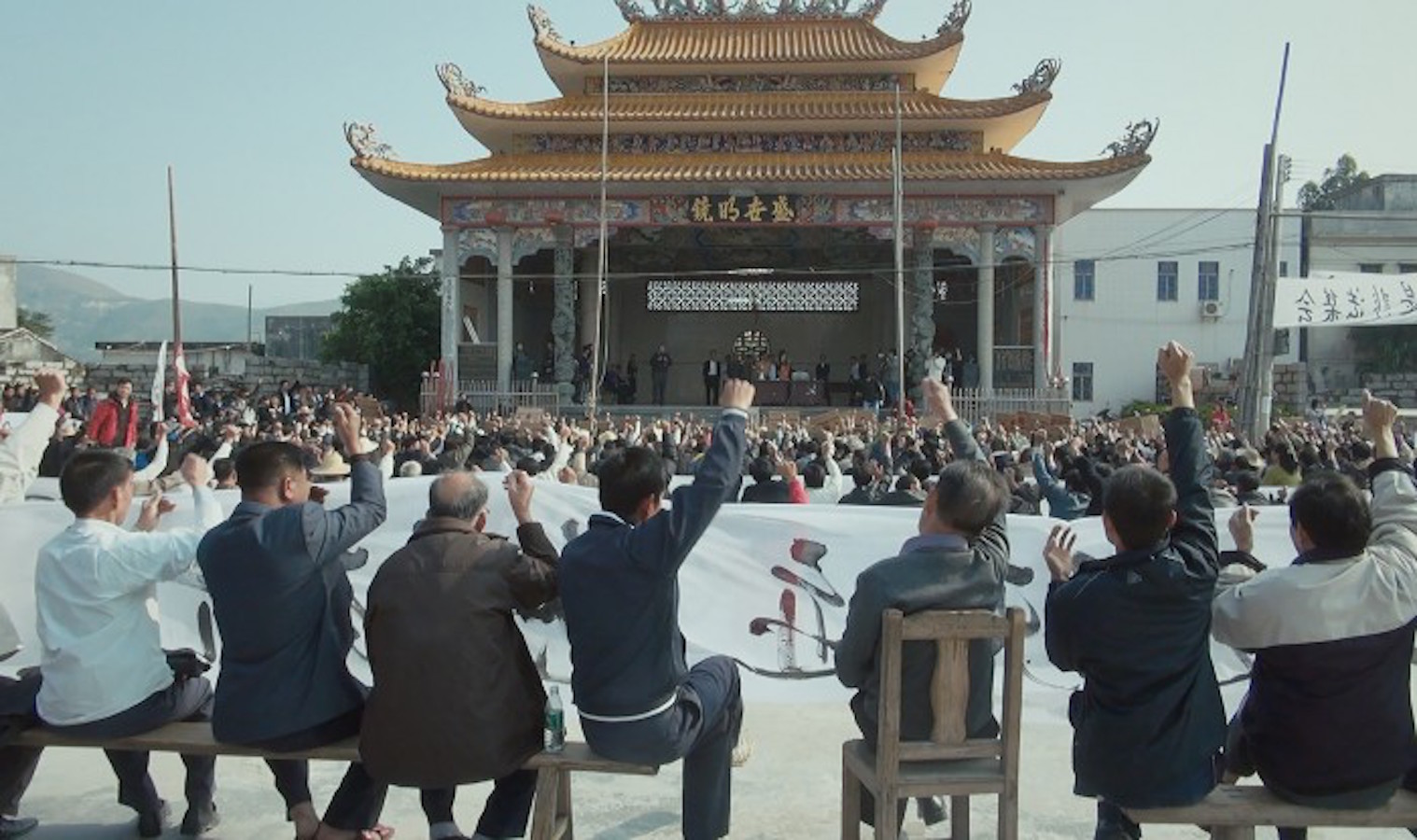by Brian Hioe
語言:
English
Photo Credit: Film Still
LOST COURSE (迷航), a 2019 documentary covering nearly ten years of the protests in Wukan village in China, is a tour de force. Not only is the film an insightful glimpse into one of the social movements in contemporary China that has received the most international attention, but it provides a powerful look into what happens when activists try to enter into electoral politics, to carry on change after the initial, spectacular eruption of protest. At exactly three hours in length, watching the film can be tasking, yet it is highly worth it.
The primarily agricultural village of Wukan has been reported on in the past ten years as a “democracy village” in China, due to protests that broke out in 2011. After corrupt local officials sold off land that belonged to villagers, this led to protests mobilizing thousands. Although the provincial government allowed the villagers to pick representatives afterward, the death of one of the representatives under suspicious circumstances while in police custody provoked further outrage.

Film Still
This resulted in more protests and the village being blockaded by Chinese police in December 2011, preventing food and other supplies from entering the village, with Internet censorship preventing news about the village from circulating online in China. Then, following further negotiations between village representatives and the provincial government, a new village committee was elected, consisting to a large degree of individuals that had taken part in the protests.
Although the film documents part of the earlier stages of mass protests, showing the aftermath of the protests is where the film is at its strongest. In particular, after taking office, efforts to return the stolen land are slow, resulting in some of the candidates that win office on the basis of having been key protest leaders being accused of having been co-opted or having themselves become corrupt. Meanwhile, former protest leaders are increasingly divided, similarly suspecting each other of having been taken in by the government. Lin Zulian, the village leader, becomes increasingly opaque to the former protest leaders that he worked with, with Lin seemingly willing to arrest challengers to his power and becoming increasingly autocratic.
The film is sometimes hard to follow, given its large cast, including not only major protest leaders but also their families. But what is remarkable about the film is how filmmakers were able to gain the trust of protest participants over the course of ten years, capturing many revealing moments—including moments of Lin directly acknowledging the authoritarian nature of some of his actions.

Film Still
This occurs despite visible friction between protest participants and foreign media at times, seeing as part of why Wukan proved such a sensitive issue for authorities was because of significant coverage of the protests by Hong Kong media and international media, given Wukan’s proximity to the global media hub of Hong Kong. Indeed, the film also shines in showing such moments of friction, seeing as protesters often appeal to the CCP in order to minimize tensions, and are wary of being seen as directly opposing the central government, but foreign media sometimes will depict them in such a light.
That being said, the film seems to make an effort to avoid emotional moments that could be melodramatic, or to focus on any one character in particular, and instead to focus on the overall trajectory of the protests. The title, referring to a boat adrift, ultimately proves a metaphor for Wukan—and perhaps China as a whole.
That is, what the film gets at quite well is what happens when social movements seek to enter electoral politics—one’s original ideals can be corrupted, and today’s allies can be tomorrow’s enemies. Activists are sometimes unable to keep going due to burnout or a pervading sense of hopelessness.

Film Still
And perhaps most terrifying of all may be the people themselves, who activists are working for the interests of. Once in power, protest leaders come to realize how short memories of the people they banked on the support of can be, in that they are willing to reelect the officials originally responsible for stealing the land of Wukan residents because of the inability of reformers to quickly get the land back. Similarly, the people in Wukan seem to be susceptible to influence by vested interests, such as by large and powerful clans in the village or organized crime groups.
For those who know the eventual fate of the Wukan protests, eventually the majority of protest leaders were again jailed. Wukan continues to be a ship adrift. But, in this respect, Lost Course proves a worthy document of a moment lost in time, and a clear examination of the afterlives of social movements.



